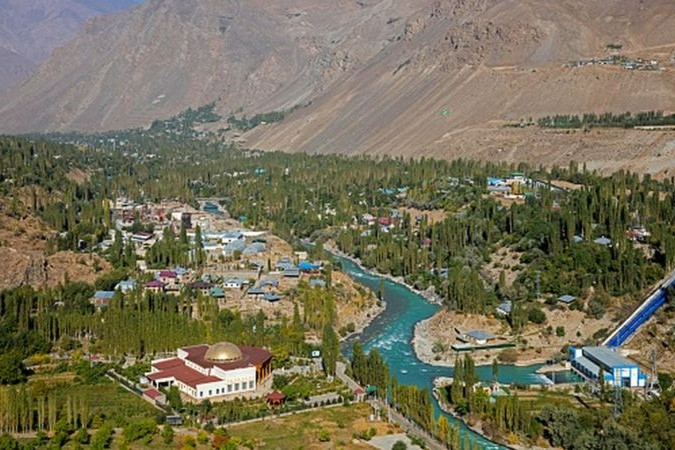This past week, the media barely mentioned Turkmenistan's parliamentary elections, and some commentators chose to instead focus on the country's position in the BRI. Several journalists were interested in the economic repercussions of Russian sanctions, since Kazakhstan acknowledges the benefits of international firms relocating to its soil but claims that the increase in its imports of goods this year is not directly attributable to sanctions. Lastly, recent developments indicate that the Taliban's diplomatic significance in Central Asia is growing.

Khorog, Tajikistan. Source: Getty Images
As opposed to last week's elections in Kazakhstan, Turkmenistan's parliamentary elections were barely covered in the mainstream media (Al Arabiya). The reason is that the 125-seat unicameral assembly has no de facto authority, especially since the setting up of a new People's Council under the leadership of former President Gurbanguly Berdimuhamedov, who ruled for 15 years before handing the reins to his son but remains the actual holder of power. With a claimed turnout of 91.1%, the SCO and the Commonwealth of Independent States provided their endorsement, while for nearly two decades, none of the elections in the country has been deemed free or fair by Western poll observers.
Instead of the elections, more attention was paid to the perspectives and challenges of the Belt & Road Initiative in Turkmenistan (Silk Road Briefing). Since China–Central Asia–West Asia corridor is destined to cross the neutral and isolated Turkmenistan, China sees cooperation in the infrastructure, transport, and energy fields as key priorities. With the fourth largest proven natural gas reserve in the world, Turkmenistan was quickly included in the Chinese energy supply system, which might be a cornerstone for further cooperation. Turkmenistan sees China as its most important partner in becoming a logistics and transport hub that will help Central Asia’s landlocked countries gain access to maritime routes. Challenges such as the isolationist policies of Ashgabat and the dominance of government institutions over the economy paired with infrastructural shortcomings are yet to be overcome.
Elsewhere, the race for catching sanction-busters continued in the media. As Kazakhstan announced last week the introduction of an online system to track all goods entering and exiting the country (Financial Times), it now seems to be Kyrgyzstan’s turn to come under scrutiny for allowing items to transit to Russia. Radio Free Europe reported that the European Union's special envoy for the implementation of sanctions, David O'Sullivan, has noticed a 300-percent increase in goods coming to certain areas (Kyrgyzstan included) from the EU in recent months and that he is hoping to discuss this issue with top Kyrgyz officials. Meanwhile, Deutsche Welle has been fact-checking Kazakhstan’s Prime Minister Alikhan Smaiylov's declarations over the relocation of international companies from Russia to Kazakhstan, and claims that the economic benefits for Kazakhstan might be exaggerated in some cases.
The most significant regional issue during the month of March and last week was the slow but steady normalization of Central Asian countries' relations with the Taliban regime (CCASC). While Turkmenistan handed over the Afghan embassy in March 2022, and Uzbekistan received an Afghan delegation in the summer of 2022, Tajikistan was understandably more reluctant to recognize the Taliban. After Termez (Uzbekistan) however, it was the turn last week of the Khorog (Tajikistan) consulate to fall under the control of the Taliban. The Diplomat reports that earlier this month, the Kazakh ambassador and the Afghan Foreign Minister discussed cooperation in the transportation field and that Afghanistan was a central point of the Mirziyoyev-Tokayev informal discussion session in Shymkent, reported on in early March (CCASC). Kazakhstan aims to find profitable trade, establish a strong north-south axis, as well as promote regional security, since an isolated and vulnerable Afghanistan may prove more perilous for the neighboring countries than a slightly hazardous partner.

